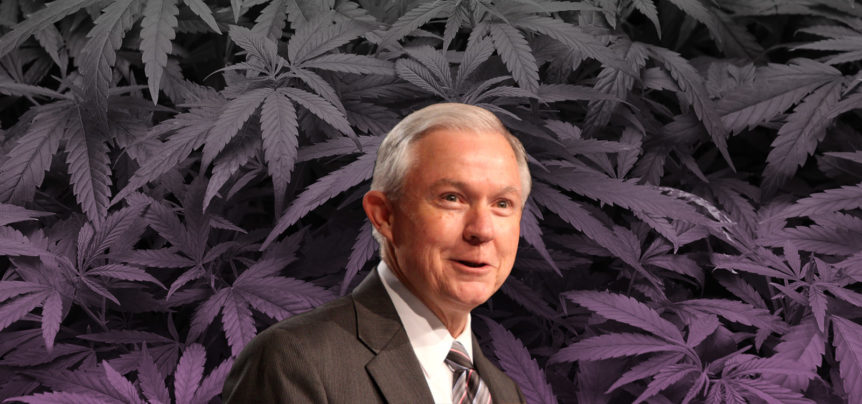Attorney General Jeff Sessions — a notorious prohibitionist and medical cannabis skeptic — confirmed today that the Department of Justice is continuing to honor federal cannabis policies that were put into effect under the Obama Administration.
According to a Forbes report by cannabis journalist Tom Angell, Sessions told members of Congress during a House Judiciary Committee oversight hearing today that, “Our policy is the same, really, fundamentally as the Holder-Lynch policy, which is that the federal law remains in effect and a state can legalize marijuana for its law enforcement purposes but it still remains illegal with regard to federal purposes.”
The policy being referred to is known as the “Cole Memo,” which — established in 2013 by then-Deputy Attorney General James M. Cole — lays out guidelines for states to create their own medical cannabis programs without fear of federal intervention. Today, more than 29 states and the territories of Guam, Puerto Rico, and the District of Columbia have enacted medical cannabis reforms and rely on the Cole Memo’s protection. Eight states plus Washington D.C. have gone even further by ending cannabis prohibition entirely, but the Cole Memo does not address the legalization of adult-use cannabis.
Sessions also admitted that cannabis is less dangerous than heroin, despite both substances being categorized as Schedule 1 under the Controlled Substances Act — a classification that is supposed to be reserved only for the most dangerous, addictive, and non-medical substances.
Since becoming Attorney General for the Trump Administration, Sessions has waged a largely unsuccessful vendetta against the reform of cannabis laws. In April, he directed his staff to study whether cannabis law reforms have led to an uptick in violent crimes (they haven’t); in June, he urged Congress to restore funding to the Department of Justice for enforcing federal cannabis laws in state-legal medical cannabis markets (they didn’t); and in August, he blocked the DEA from moving forward on 25 applications to grow research-grade cannabis for the federal government.
Opinions expressed the above syndicated article by Graham are for informational purposes only and not necessarily the opinion of Herban Medical Options.
For full article and information, visit: Source

